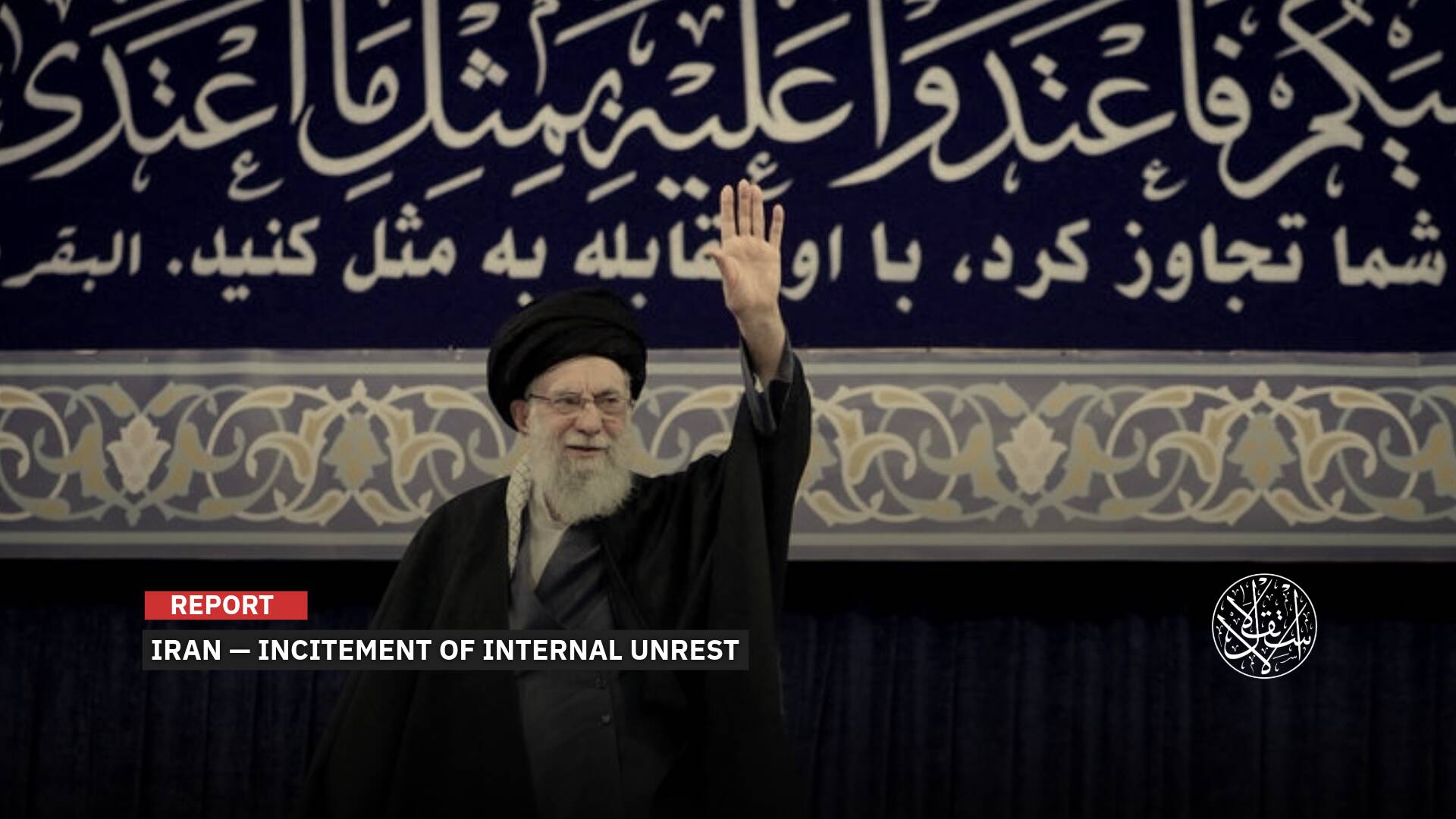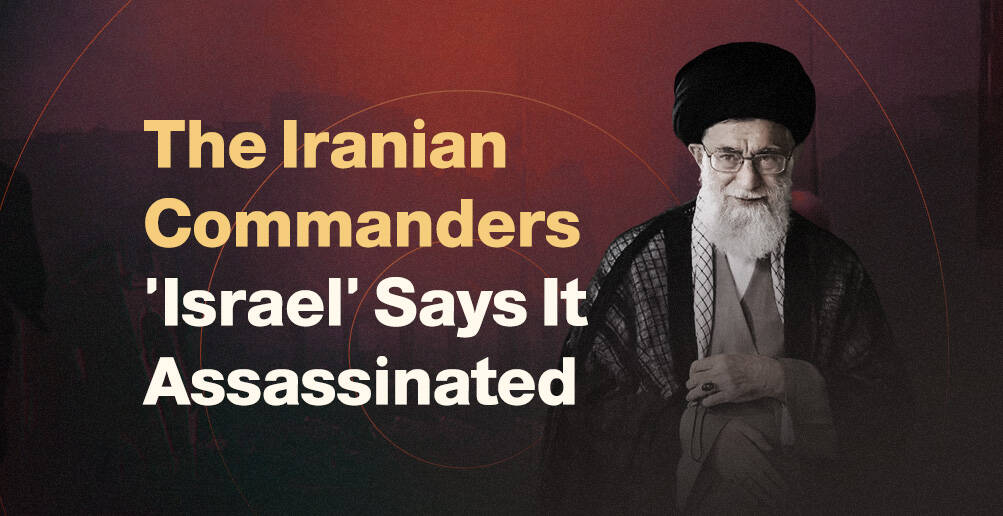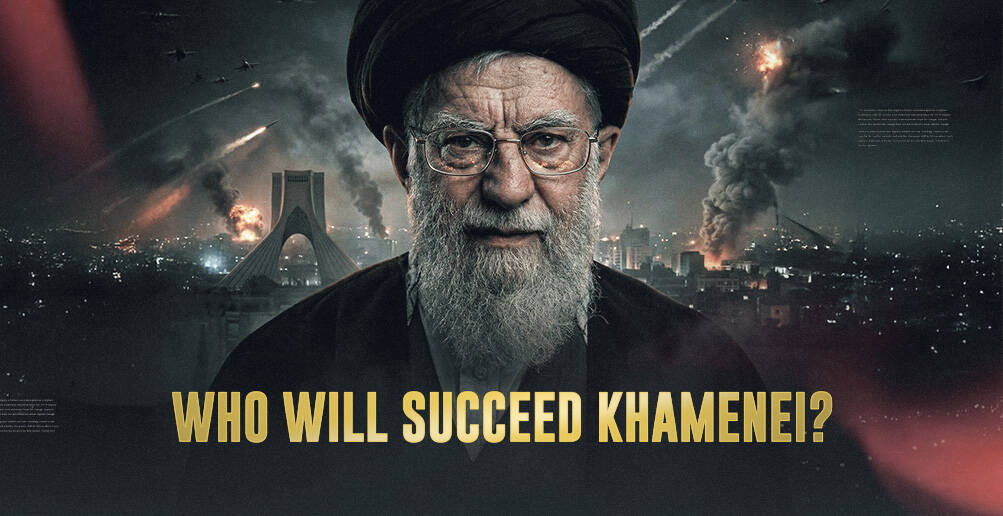Slovenia Leads the Way: The Story Behind Its Historic Stand Against ‘Israel’
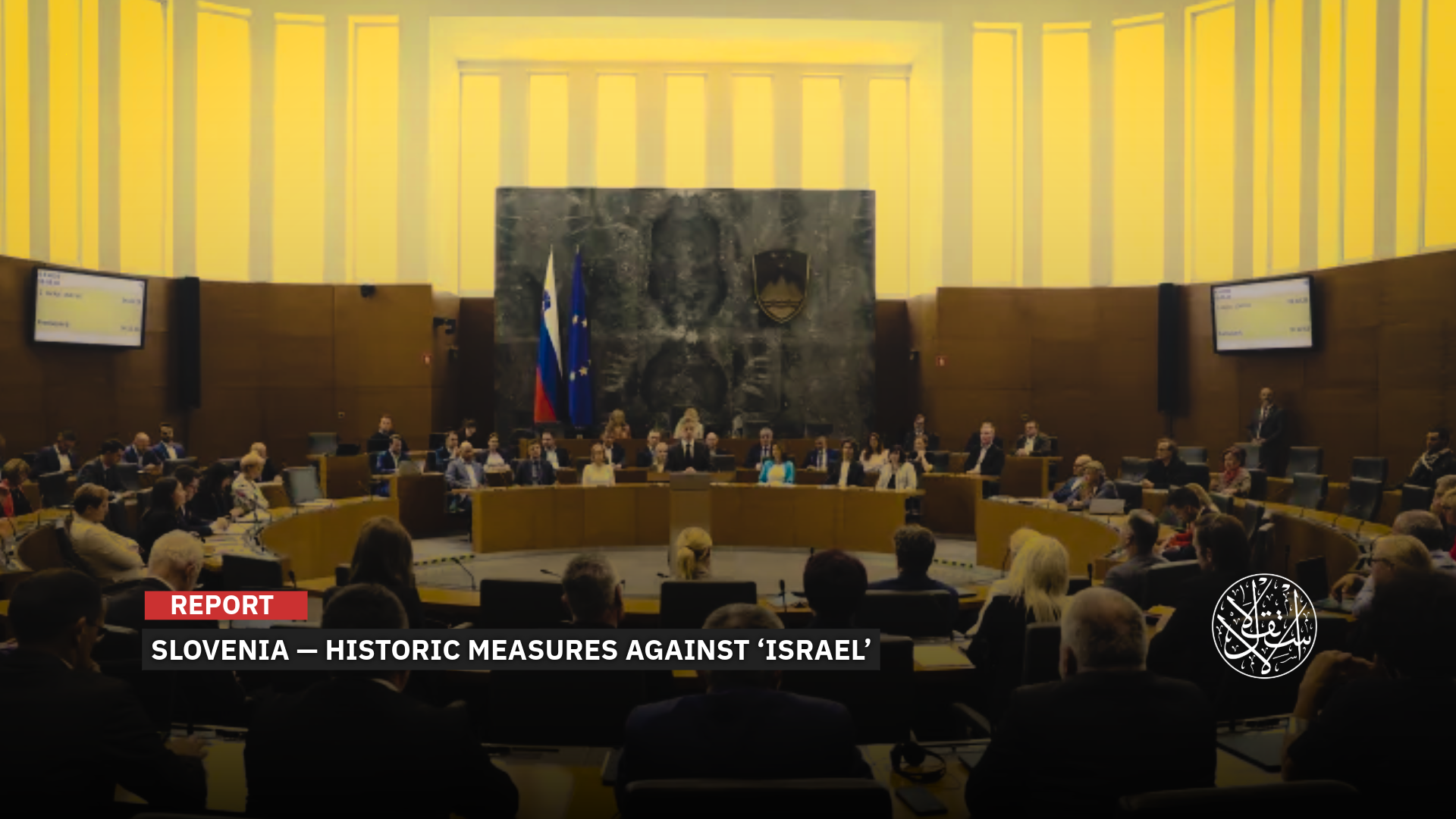
Slovenia has banned the transfer of all weapons and military equipment to “Israel.”
Despite the ongoing Israeli genocide and starvation in Gaza and the continued threats to occupy the territory, the European Union has remained either unable or unwilling to adopt a unified position that includes punitive measures or meaningful pressure on Tel Aviv.
While most of its members have limited themselves to diplomatic statements and warnings, an unexpected political move emerged from within the bloc, as one country took an independent and bold step outside the bounds of European consensus.
Strikingly, that country was not Spain, Ireland, or Norway, which have long raised their voices early in criticizing “Israel’s policies,” but Slovenia, the small Balkan state that broke away from the former Yugoslavia in the early 1990s and joined the European Union in 2004.
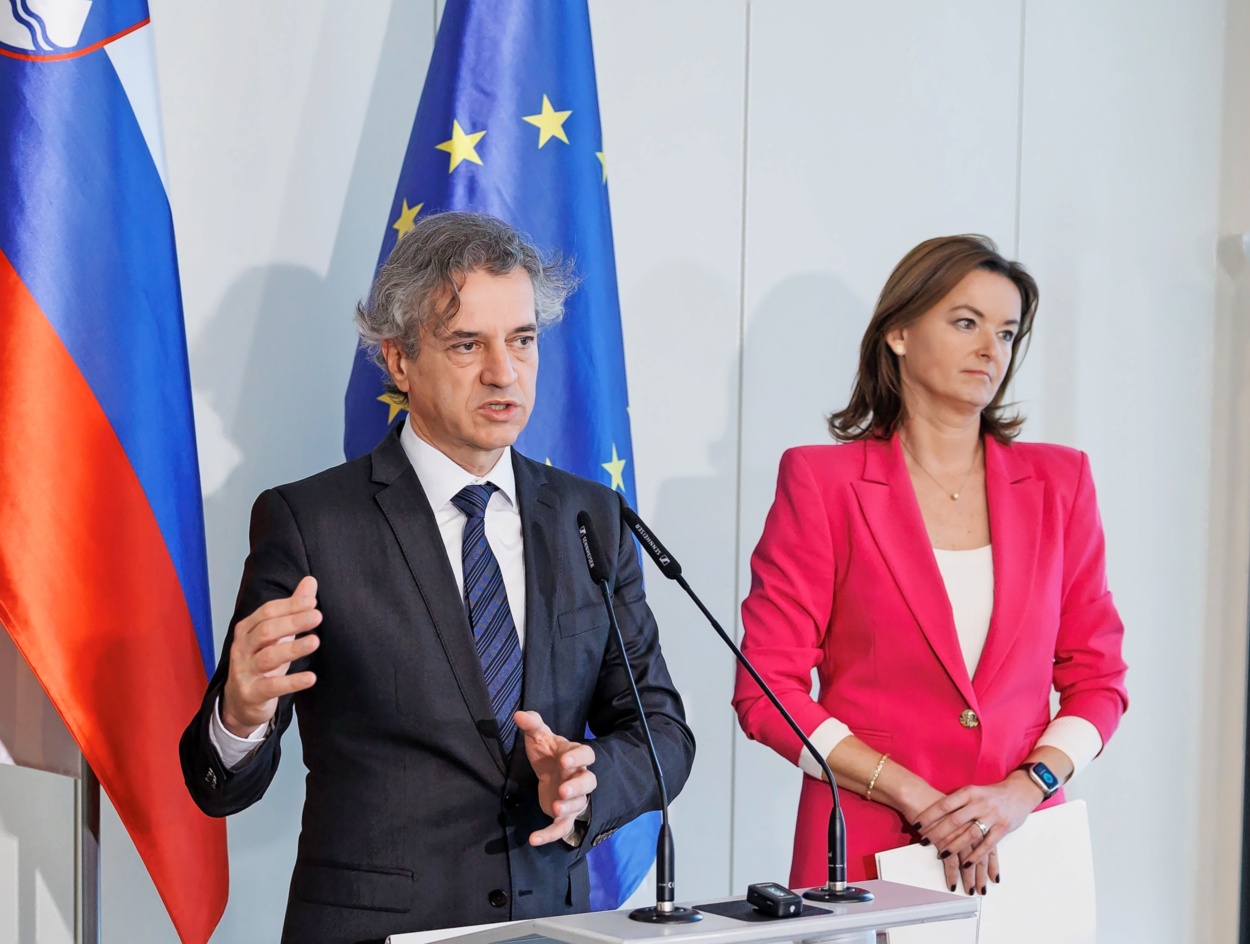
Recent Measures
Slovenia recently warned it would take steps independent of the European Union if the bloc failed to adopt practical measures against “Israel,” and it has now followed through.
On August 7, 2025, it announced a ban on the import of products from Israeli settlements in the occupied West Bank, as part of its response to “the Israeli government’s policy that undermines prospects for lasting peace.”
The government noted it is also considering a ban on the export of goods sent to illegal settlements, adding that further measures will be taken at a later stage.
Despite the significance of the move, Slovenian Foreign Minister Tanja Fajon acknowledged the ban was “symbolic,” while stressing that it was “a necessary response to the ongoing humanitarian and security situation in Gaza.”
According to Slovenian news agency reports citing government data released in January 2025, the EU and NATO member state did not import any products from Israeli settlements deemed illegal under international law in 2022 and 2024.
In 2023, Slovenia’s total imports from West Bank settlements amounted to only €2,000. Its exports to those settlements included medical equipment and pharmaceuticals.
Alongside the settlement ban, Slovenia also approved additional aid to Gaza in the form of food and blankets worth €880,000.
Explaining its latest decision, the government in Ljubljana said “Israel” was committing “serious and repeated violations of international humanitarian law” in the occupied West Bank, adding that Slovenia “must not be part of a chain that turns a blind eye to illegal construction, land confiscations, and expulsions.”
Slovenia was also the first European country to ban arms trade with the Israeli Occupation in July 2025, citing the ongoing genocide on Gaza.
That decision came after Slovenia concluded that the EU “was unable to adopt” such a measure.
Although the European Commission had recently proposed partially suspending the EU-“Israel” association agreement, member states had yet to approve it.
Under Slovenia’s decision, the transfer of any weapons or military equipment to or from “Israel,” as well as any passing through Slovenian territory, is prohibited.
An official statement said the government has not issued any permits for the export of weapons and military equipment to “Israel” since October 2023 because of the war on Gaza.
“People in Gaza are dying because humanitarian aid is being systematically blocked,” the statement read. “In such circumstances, it is the duty of every responsible country to take action, even if this means taking a step ahead of others.”
An unnamed Israeli official told Yedioth Ahronoth that “Israel” does not buy “a pin from them [Slovenia]” and that the move was irrelevant.
Slovenia’s actions have continued as the country has raised its voice against mass killings. On July 31, its foreign ministry summoned the Israeli ambassador to protest the humanitarian disaster caused by blocking urgent aid deliveries to Gaza.
In May 2025, Slovenian President Natasa Pirc Musar described the war and atrocities in Gaza as genocide in a speech to the European Parliament.
Slovenia was also the first country to bar two far-right Israeli ministers, Finance Minister Bezalel Smotrich and National Security Minister Itamar Ben-Gvir, from entering its territory, accusing them of making “statements inciting genocide” against Palestinians.
Ljubljana had officially recognized the State of Palestine in June 2024, after three European countries—Norway, Spain, and Ireland—took the step.
“Israel” has increasingly lost support in Europe, even among its allies, because of its deliberate starvation of Gaza’s population and the obstruction of humanitarian aid deliveries after it closed all crossings into the besieged territory on March 2, 2025.
More than 15 Western states have since announced, in both individual and joint statements, their intention to recognize the State of Palestine at the UN General Assembly in New York in September 2025 as a way of pressuring “Israel,” while urging other countries to follow suit. However, no sanctions have yet been imposed.
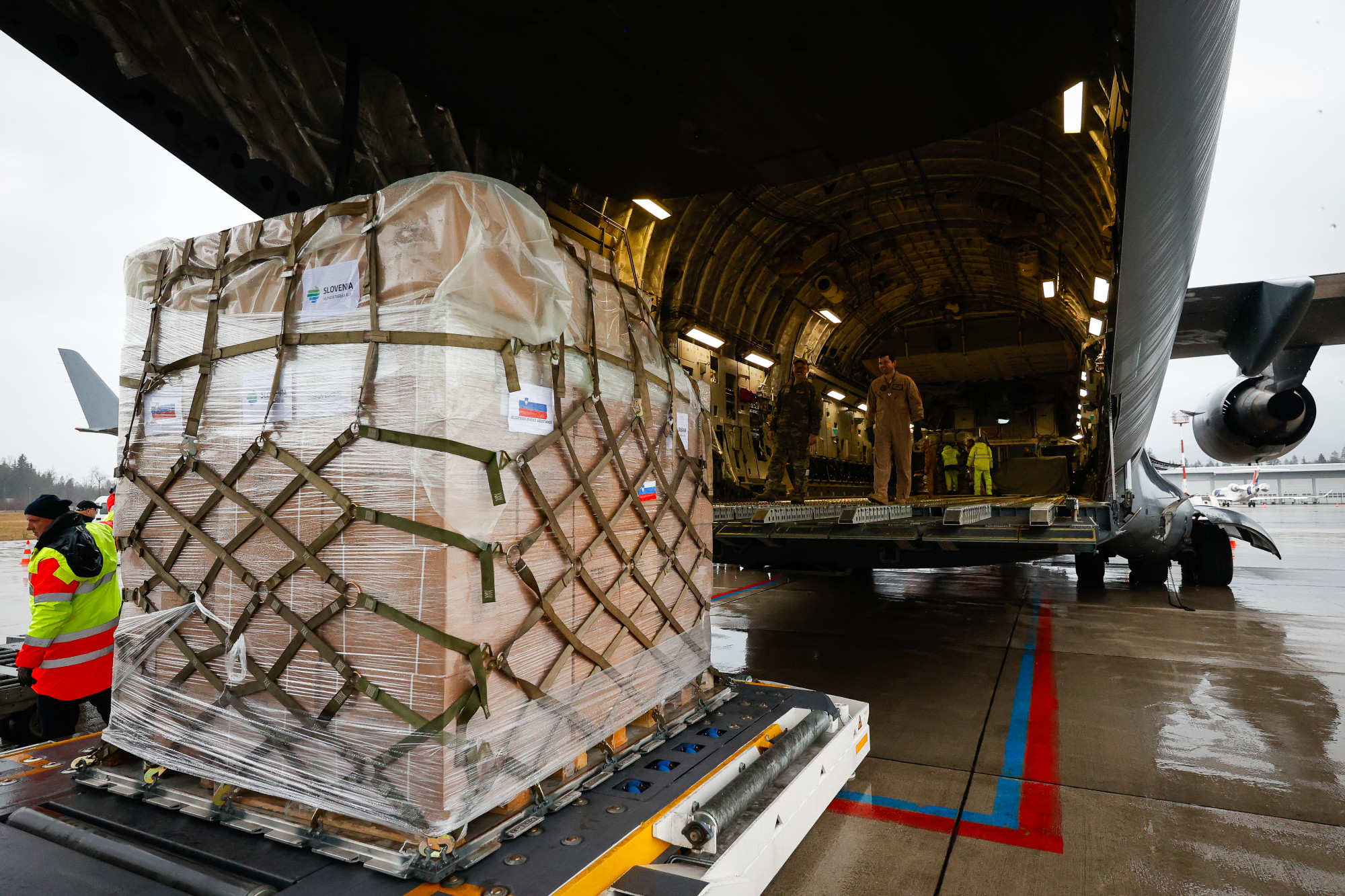
Reasons for the Shift
Slovenia’s foreign policy engaged vigorously with the Israeli war on Gaza since spring 2024, but after Donald Trump entered the White House, attention to the genocide waned.
The European Union became preoccupied with trade wars and tariffs. On top of that, the bloc’s deep divisions over the Gaza war weakened the diplomatic and political initiatives of smaller countries such as Slovenia to bring the war to an end.
But as images of famine began to emerge, Gaza returned to the spotlight, drawing renewed attention and outspoken remarks from senior Slovenian officials.
Prime Minister Robert Golob said it was time for the European Commission to respond to “Israel’s” clear violation of the association agreement.
Slovenia became one of the countries that joined the Netherlands in May 2025 in calling for a review of the 1995 agreement, based on Article 2, which states that respect for human rights is the foundation of bilateral relations between “Israel” and the Brussels bloc.
Accordingly, the EU began a review of the agreement on May 20 to examine “compliance with human rights and international law,” but it has not decided to suspend or cancel it.
Golob stressed the need for the European Union to move beyond symbolic solidarity, saying, “It is high time that we do not show just solidarity, but we put real pressure on the Israeli government.”
The Slovenian government diverged from most of its neighbors in Central and Southeast Europe in its stance toward the Israeli Occupation, a position observers attribute to the left-leaning approach of the ruling coalition.
Golob’s center-left government, in power since 2022, marked a sharp break from the course of the previous administration led by Janez Jansa of the center right, as well as from the policies of Central and Eastern European leaders such as Poland, the Czech Republic, and Romania, which strongly back “Israel.”
Slovenia was the first European country to formally request in January 2025 an advisory opinion from the International Court of Justice (ICJ) on “Israel’s” control over the West Bank, Gaza, and Occupied East Jerusalem.
It also joined Algeria, Guyana, and Switzerland in calling for a UN Security Council meeting on the role of humanitarian workers in delivering aid to Gaza, while condemning Israeli attacks against them.
According to an analysis by the Center for Eastern Studies (OSW) in Warsaw, Ljubljana’s participation in ICJ proceedings was the first time its government had taken a stance that significantly diverged from the EU’s prevailing foreign policy line.
Until recently, the government had strongly backed ideas such as deepening European integration and reforming the EU voting system. “Its attitude towards the present stage of the Israeli-Palestinian conflict results from the views held by the coalition’s left-wing electorate,” as per OSW.
These views include a critical stance toward the foreign policies of the United States and “Israel,” described as neo-colonial, as well as a positive, peaceful approach toward Global South communities.
The Berlin-based outlet bne IntelliNews said Slovenia’s current stance against “Israel” stands out in a region where support for Tel Aviv is strong.
In April 2024, it noted that Slovenia’s current position represents a deliberate departure from that of former communist regimes in Central and Southeastern Europe, which redefined their foreign policies around alignment with the United States, the Western world, and “Israel.”
The OSW also argued that “the present government’s approach was likely influenced by pro-Palestinian demonstrations held in Ljubljana which gathered several hundred protestors.”
One such protest took place outside the Slovenian parliament on March 25, 2025, forcing the suspension of a session on border changes with Croatia. It was followed by several demonstrations demanding urgent action by the Slovenian government to stop the Israeli genocide in Gaza.
The center added that “the approach of Slovenia’s government and a portion of its elite to the conflict in the Gaza Strip is also a manifestation of their strong intention to distance themselves from the previous center-right government led by Janez Jansa, which emphasised Slovenia’s political and economic partnership with Israel, as well as its close relations with Prime Minister Benjamin Netanyahu.”
For example, Jansa ordered the Israeli flag to be raised over the headquarters of his Slovenian Democratic Party during a previous crisis.
In autumn 2023, he stirred political controversy when he urged Slovenians to arm themselves in anticipation of a new wave of migrants through the Balkan route following the outbreak of the Israeli aggression on Gaza.
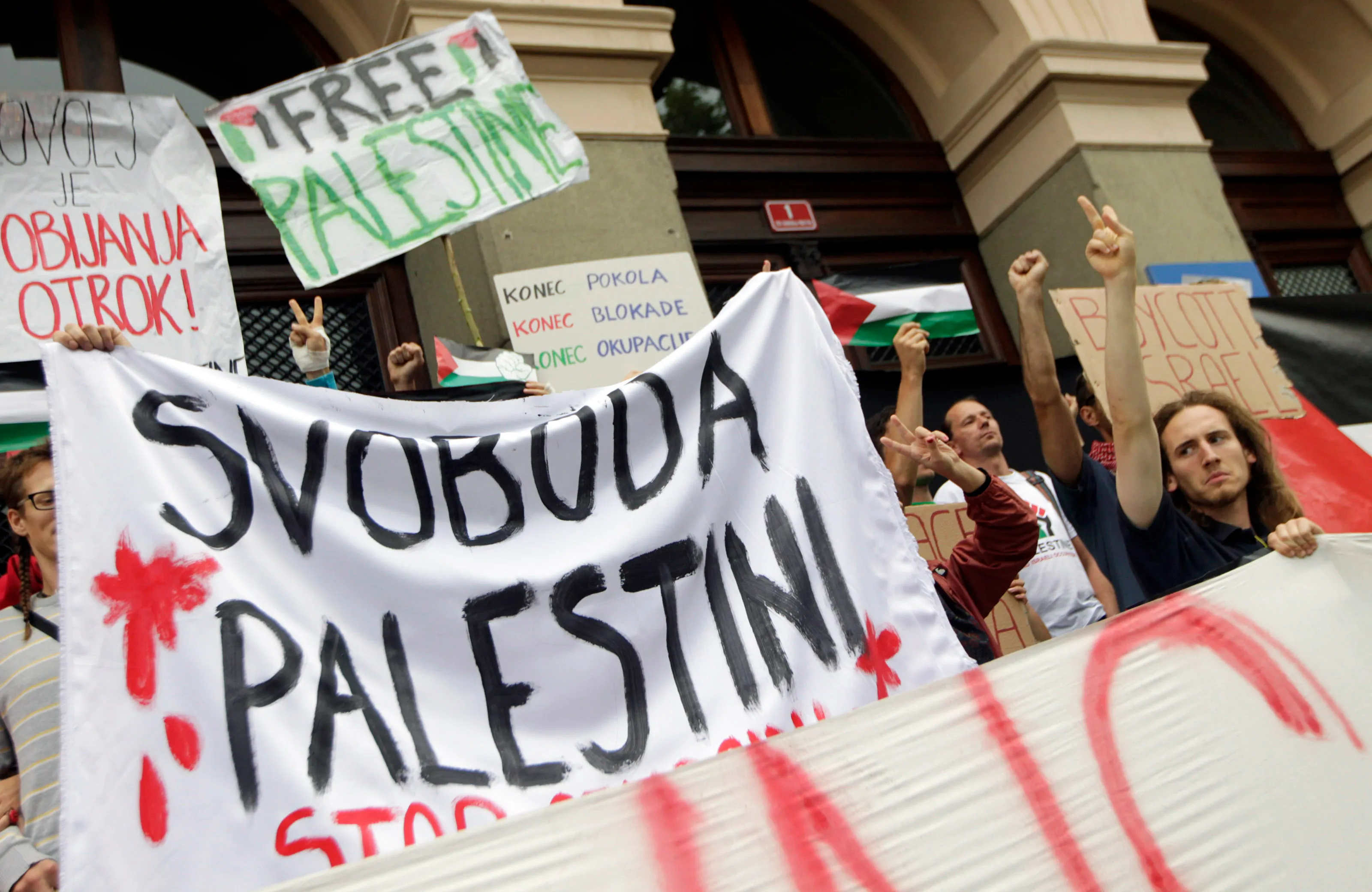
The Significance of the Step
Despite attempts by the Hebrew media to downplay Slovenia’s measures, this does not seem to be the case when viewed within the broader context of Europe threatening to escalate its actions against Tel Aviv.
In August 2025, “Israel’s” ambassador to Brussels, Haim Regev, said that “Israel” is the EU’s dream neighbor, and its critics inside the bloc should abandon their frustrating obsession with human rights in Gaza.
Regev attacked “Israel’s” critics, naming Slovenia alongside Ireland, the Netherlands, and Spain as the countries that led European protests over the suffering of Palestinians in Gaza.
“Israel’s” political and military leadership has admitted on several occasions that Tel Aviv is facing severe isolation due to its aggression in Gaza and the deliberate starvation of Palestinians.
On the significance of Ljubljana’s recent steps, Slovenian journalist and writer Ana Schnabl said the bans on Israeli weapons and settlement goods were decisive and important political moves, but that they required full implementation “to have any real meaning.”
“As far as I know, the Slovenian government currently has no effective system to monitor the import, export, or transit of Israeli weapons,” she told Al-Estiklal.
In other words, the government does not track these transactions at all, which means it cannot reliably prevent them. Without strict oversight, the writer warned, the ban risks becoming nothing more than words on paper.
She added that the same applies to goods, since “products from Israel’s illegal settlements are usually labeled as ‘Made in Israel.’”
Schnabl stressed that this practice makes it nearly impossible to distinguish them from goods originating within “Israel’s pre-1967 borders” [the occupied Palestinian territories]. Without proper labeling requirements and active inspections, she said, it remains unclear how the ban can be practically enforced.
She argued that if any product is labeled “Made in Israel,” it should be barred from entering Slovenia, since it could come from the settlements.
On the decision to ban Itamar Ben-Gvir and Bezalel Smotrich from entering the country, she said the move was important and symbolic “even though I understand that these individuals had no actual plans to visit Slovenia.”
According to Schnabl, the restrictions must go further. “All Israeli government representatives, especially those complicit in the ongoing genocide, should be banned from entering the country.”
In short, Schnabl believes the measures announced so far are steps in the right direction, but they must be enforced concretely and then broadened beyond political, economic, and diplomatic relations.
Barbara Vodopivec, an activist with the Slovenian Campaign for Palestinian Rights, said that when “Israel” dismisses such measures as worthless, it is using “an old tactic aimed at discrediting them.”
“Any action taken by any state against Israel is typically described as either ineffective, anti-Semitic, or illegitimate,” she told Al-Estiklal.
“This is part of its attempt to present itself as a state beyond suspicion or accountability, a process now enabled by the United States and the European Union.”
Vodopivec acknowledged that “Slovenia’s recent measures are limited in scope, and we continue to criticize the way they were adopted.”
“The arms ban is not comprehensive, its enforcement remains uncertain, and the settlement ban applies only to exports,” Vodopivec added.
For these reasons, the Campaign for Palestinian Rights has consistently called on the Slovenian government to impose full sanctions and end all forms of cooperation with “Israel.”
Still, in the broader international context, especially within the EU, most countries have not taken any steps at all.
“Worse still,” Vodopivec said, “many of them continue to support Israel by supplying it with weapons and maintaining full economic, political, and military ties.”
“Slovenia’s measures alone cannot inflict serious material consequences on Israel, but they may carry political weight. They can, and should, set an example that encourages other countries to act, stop supporting Israel’s genocide in Gaza, and finally push the EU to impose sanctions and end its complicity in the atrocities,” she concluded.
Sources
- Europe will lose if it punishes Israel over Gaza, envoy warns
- In symbolic move, Slovenia bans West Bank settlement imports over war in Gaza
- Slovenia is first EU member state to ban weapons trade with Israel
- Slovenia warns it will act if EU fails to take steps on Gaza
- Slovenia parts company with CEE with criticism of Israel
- The Israel-Palestinian conflict and the open questions of Slovenian foreign policy
- Slovenia becomes first EU country to ban all weapons trade with Israel




